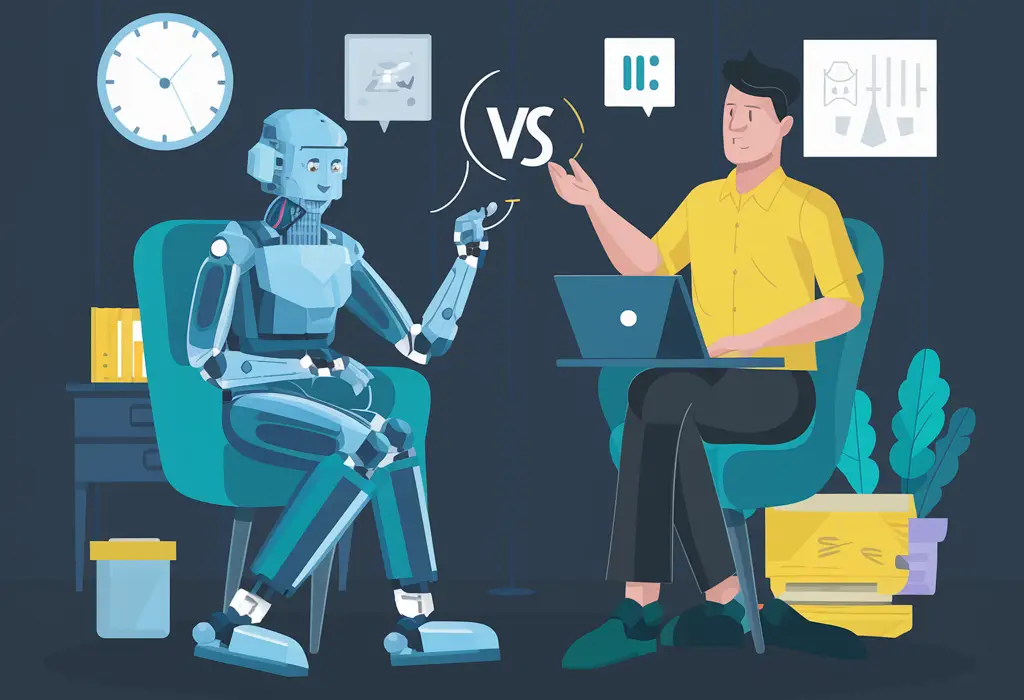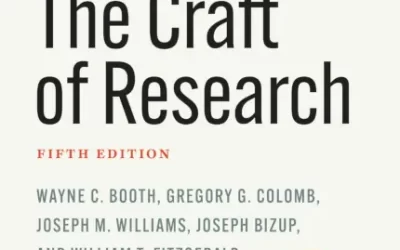In today’s world, artificial intelligence (AI) is, slowly but surely, becoming just as much of a staple to the publishing industry as the internet. Its advantages include allowing the writing and editing processes to become faster, more streamlined, and, in some cases, less expensive.

Still, there are disadvantages to AI that can’t be overlooked—specifically, it can’t replace certain abilities of human help. And if the publishing industry moves completely to an AI model—which is definitely possible over the next decade or so—the risk is very real that the field could permanently lose these human-only perks.
Take, for instance, the creativity factor. Yes, AI can take care of the mundane tasks associated with publishing, such as researching information for a book project or checking basic spelling and grammar. And yes, this should, in theory, allow human employees more time to focus on putting their creative thoughts on paper—something AI can never do.
But here’s the problem: When AI takes over a certain proportion of the writing and editing world, it effectively eliminates that creativity entirely. The result might be books, manuscripts, and other projects that sound formulaic and robotic instead of individualized and personalized. (https://www.press.jhu.edu/newsroom/future-ai-publishing)
Another problem with AI is that it can’t always edit projects in terms of context. An editor might, for instance, ask the author of a book or manuscript to remove a specific word or phrase in certain cases but not others, depending on the entirety of the paragraph and/or chapter. And if an AI tool is making edits instead of a human editor, it might not always pick up on these types of nuances. While certain specific cases where the word or phrase is or is not acceptable can possibly be plugged into an AI editorial program, there is absolutely no way any program will be able to make a judgment call for every single situation every time—that’s something only a human can do.
In addition, AI doesn’t take into account quality over quantity. Although AI-assisted editing might mean that a publishing group is able to churn out an exponentially larger number of works in a given period of time, there’s no guarantee that these works will be top of the line. In fact, it might very well mean the exact opposite: Numbers become more important than caliber, resulting in a large number of papers or books that are mediocre at best. (https://www.forbes.com/sites/forbestechcouncil/2023/07/06/seven-ways-ai-will-impact-authors-and-the-publishing-industry/?sh=b599e5d23a66)
And then there’s the issue of time-sensitive writing, especially when it comes to nonfiction works. Scientific facts and news events are shifting literally every minute. And while a human author or editor might not be able to always keep their information completely up-to-date before their book or manuscript goes to print, they can at least find wording to address the potential changes that might occur by the time they have signed off on their work. AI, on the other hand, can’t always possess enough skill to effectively do that—and this could, in turn, lead to more books, magazines, and journals that sound completely outdated, with no language to even address the room for possible change. (https://www.forbes.com/sites/forbesbusinesscouncil/2020/10/20/how-ai-is-disrupting-the-publishing-industry/?sh=3dceff9e5237)
Audiobooks make up one specific area of publishing that could see significant challenges arising from the use of AI. Audiobooks rely on vocal narration, which can easily be done through the use of an AI platform, effectively eliminating the need for a human to record narration for the work. The problem, though, lies in AI’s ability—or lack thereof—to use some of the essential elements in vocal storytelling, including voice level, tone, and word emphasis. This could, at minimum, impact the persuasiveness of the narration—and in some cases, it might even make the story much more difficult for a reader to understand. (https://www.nytimes.com/2023/08/02/books/ais-inroads-in-publishing-touch-off-fear-and-creativity.html).
Of course, none of this means that the positives of AI should be forgotten. AI has the power to dramatically improve authors’ and editors’ speed and efficiency, which may also make their quality of life significantly better, since they are theoretically not nearly as bogged down. (https://writerfulbooks.com/ai-authors-book-editors-publishers/) Nevertheless, when deciding whether to incorporate AI into their workflow—or what proportion of AI to use compared with human help—publishing businesses must take all of these factors, both positive and potentially negative, into careful consideration.
By: Anne Brenner
Anne is an Assistant Managing Editor at Technica Editorial




